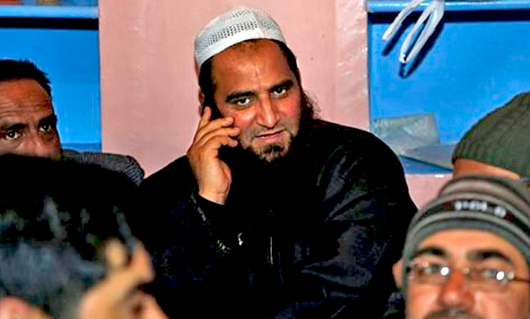New Delhi, Mar 10: The release of Kashmiri separatist Masarat Alam from jail was not entirely the PDP government's decision. And that his release was decided when Jammu and Kashmir was under the Central rule, according to a news report.
"In a letter on February 4, the state's Home Secretary Suresh Kumar told the Jammu District Magistrate that an order in September detaining the separatist under the Public Safety Act had become void as it had not been confirmed by the state home department," according to NDTV, which claims to have accessed the government letters for the same.
Three days after the PDP-BJP formed government, on March 4, the Jammu district magistrate issued a written directive to the police to release Alam has his preventive detention had not been approved by the government, the report added.
The new revelation is likely to cause ripples in political circles, as until now it was assumed that the new PDP-led Jammu and Kashmir government was solely responsible for the decision on releasing the Hurriyat hardliner.
Alam has dozens of cases including waging of war against him and carried a cash reward of Rs 10 lakh for information leading to his arrest. He had also spearheaded stone-pelting agitations in Srinagar between 2008 and 2010, However, on Saturday the 44-year-old separatist was released from Baramulla district jail, where he was lodged for four years.
The latest report also contradicts Prime Minister Narendra Modi's statement that JK government had kept the Centre in the dark over the release of Alam.
“I want to assure the House and the nation, after government formation (in J&K) whatever developments have taken place are not in consultation with the Centre. Nor have they informed us about it,” the prime minister said on Monday.






Comments
Add new comment